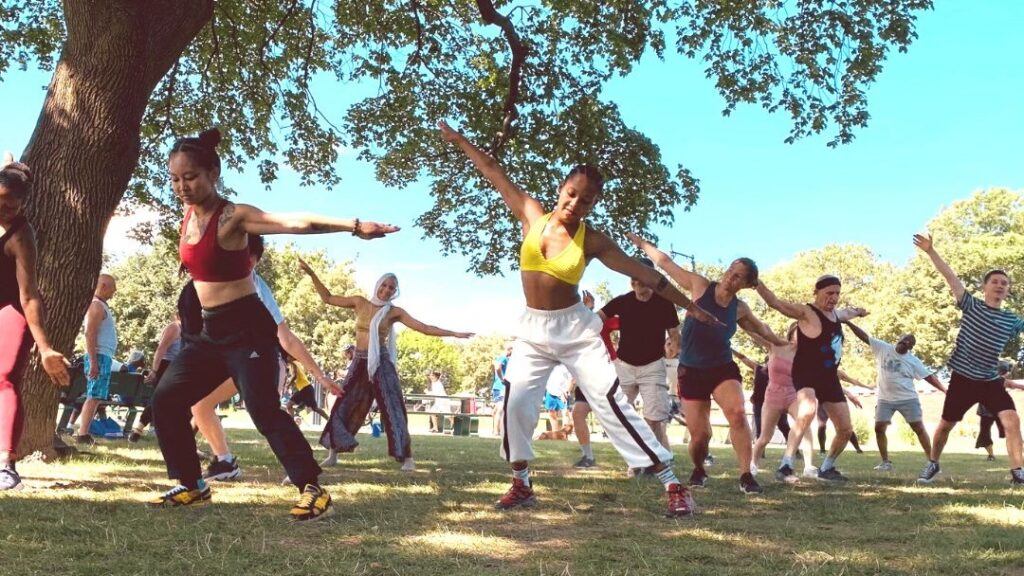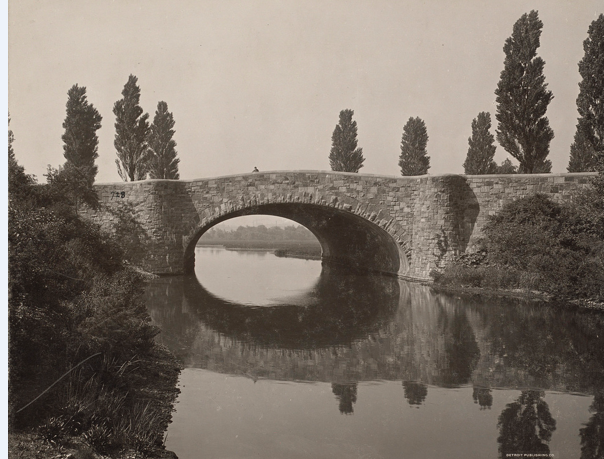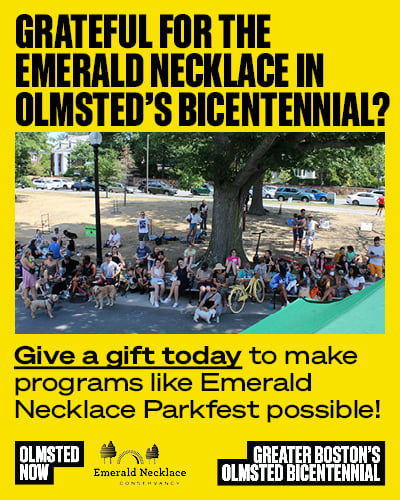On August 21 from 11am-6pm, the Boston Liberation Center will host its one-year anniversary celebration and reflection event on reclaimed public land and in the working-class community center with local food, music/art and family activities. Olmsted Now talked more with Rachel Domond of the Boston Liberation Center about the program, supported by the Olmsted Now Parks Equity & Spatial Justice Grant. This interview has been edited for length and clarity.
Could you introduce yourself and your organization?
My name is Rachel Domond; I live in Roxbury. I’m an artist, and I’m a community organizer, and I’m also one of the coordinators—we’re all actually volunteers, so I’m a volunteer coordinator—of the Boston Liberation Center. The Boston Liberation Center is an entirely volunteer effort, it’s an independently run, operated and funded working-class community center on Blue Hill Ave in Roxbury. I actually live right across the street from it, which is great for me. We see ourselves as a hub for community organizing and for education—studying people’s movements past and present, history in general, and then acting as a hub for different issues that affect working people in Boston and beyond. For example, housing organizing is something that I personally do out of the Center with tenants that live along Blue Hill Ave and things like that. We also do cultural-related events. We have a lot of artists who volunteer through the Center and run the Center. Revolutionary culture is what we aim to cultivate, because we know that culture and art is very political, and if it’s not thought about consciously, then it can hurt us, rather than help us, in a lot of ways.
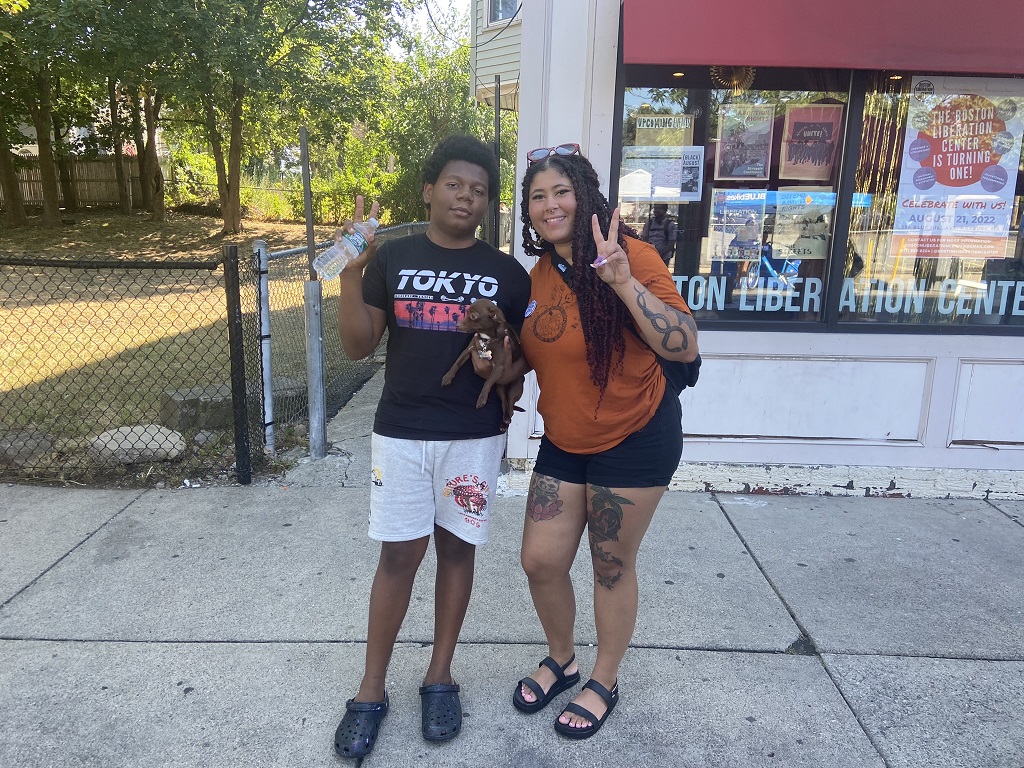
How would you describe your program? How did you choose the location of your program?
We are utilizing this grant to celebrate the Center’s first birthday, which is happening on August 21. It’s happening on a green space—it’s also happening inside, but it’s happening primarily on a green space right next to the Center. It is a city-run, city-owned plot of public land that has just been overgrown, unkempt, very dirty—there’s mad trash, needles, things like that. It hasn’t been cared for by the city. All of our volunteers take up cleaning it on a regular basis, putting in a lot of hours and just crowdsourcing materials to do that. That’s where we’re going to be hosting the event, really for families, for neighbors, for people in the neighborhood. At that event, we’ll be having different community discussions and presentations about different organizing and stuff we’ve done over the past year, and also different cultural activities like musical performances, dancing, making a community mural.
One interesting thing also worth pointing out is that this plot of land is part of the Blue Hill Action Plan, which means the city is basically trying to auction it off now so that people can develop on it. Our nonprofit actually put in a proposal to get the land so we can maintain it as green space. Because [as someone] living here also—like, there’s nowhere to sit in the neighborhood! There’s nowhere to just exist. And a lot of times when people do congregate in the neighborhood, the police get involved, right? Or they try to criminalize people in ways that are really obscene. So, we’re just trying to really reclaim the public space through this event and through different initiatives—so we can continue to host events, so community members can feel like they can utilize it.
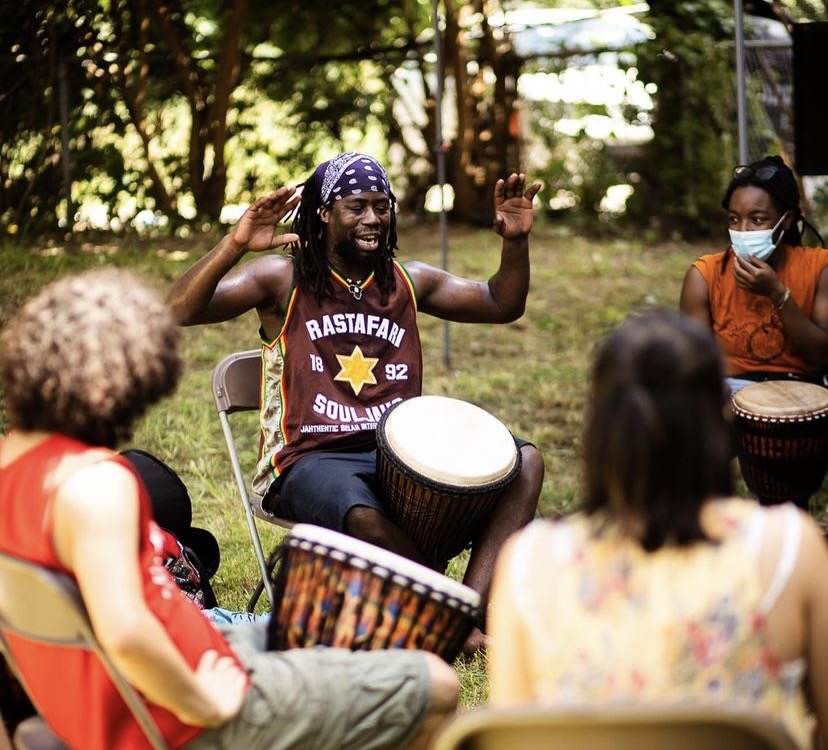
So you put in a proposal for the land—has there been any movement on that?
We should hear back if we make it through the first round, I think come September—sometime in the fall. We really didn’t have a choice, it was like: We either fight for it, to preserve it as community space—because we can’t guerilla use it anymore, if they’re gonna have it as development—or we just have to withstand some probably luxury something going up there. And it’s not a super big space, so it’d be a nuisance to have something built there. We actually did a lot of door-to-door outreach in the neighborhood to talk about this, to talk about preserving green space. We got, like, 200 letters of support from neighbors to keep it as a green space and to really just fight for that. Because we know that it’s a need in our communities. I mean, even just thinking about heat islands—[parts of] Roxbury, because of the lack of green space and just the way that the city is designed, can be up to [10] degrees hotter than other neighborhoods that have green space.
That’s the perfect segue to the next question. On the theme of the grant, why, from your perspective, do parks need more equity and spatial justice programming? How does your program speak to that need in Boston?
In this circumstance, this isn’t really a park necessarily, but it’s this public land that is operated by the city, and it’s left unkempt, and then it’s sort of a self-fulfilling prophecy. Like, “No one’s using it, so we need to do something else with it—we need to develop something else there.” And that’s just not right. Because people do want it—of course we want it, we don’t want to be living in a concrete jungle in the middle of Boston, you know. And we know that certain neighborhoods have a lot of access to green space, whereas, for instance, Roxbury really doesn’t have a lot of parks and space to just use. I mean, I think doing this type of programming demonstrates to neighbors and also to the people who make these decisions that, in fact, this is space that we need and want to utilize. There’s just often a lack of resources to be able to host these types of programs or to really build up the land into something that we want to be able to use. And yeah, there’s just so much racism and classism embedded in how parks are utilized and the lack of equity that exists right now. I think it’s super important that Olmsted Now has these types of grants to continue to let just, like, regular people in the community cultivate and do programming in these spaces.
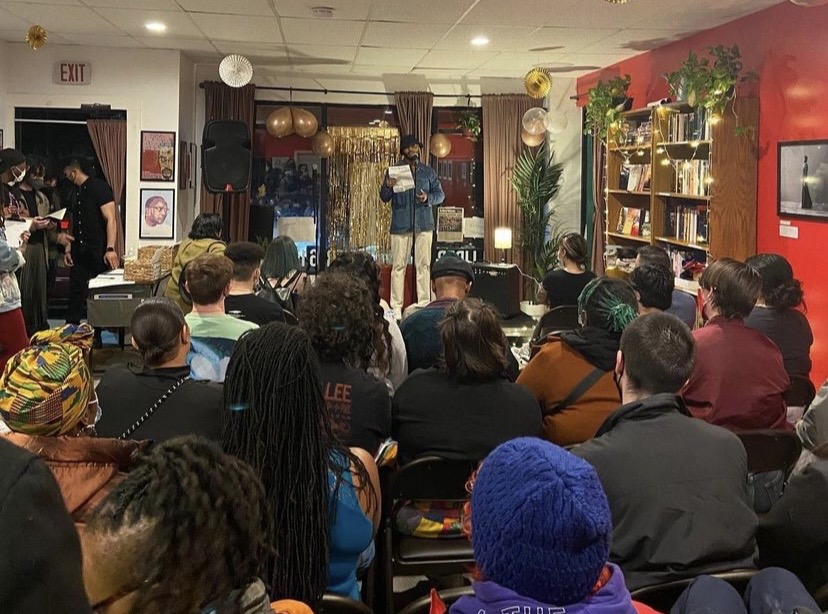
What about parks and public spaces makes you most grateful?
I love living in a city. I don’t think I could ever really live somewhere rural, or whatever. But parks and public spaces are an important break from the city. It’s a place to really rest and unwind and just enjoy nature in a way that it’s harder to do in a city. I think it’s also often a space where people can congregate—people can come together—that’s not just inside a house. Backyards are so few and far between in Boston, right? So even that is a hard thing to come by in terms of wanting to congregate with people. There are only so few months in the year that are nice in Boston and you can really be outside, so I’m grateful to just be able to enjoy the beauty of nature and be able to congregate with people and be social.
What 3-5 words capture the essence of your program?
Public land in people’s hands.
